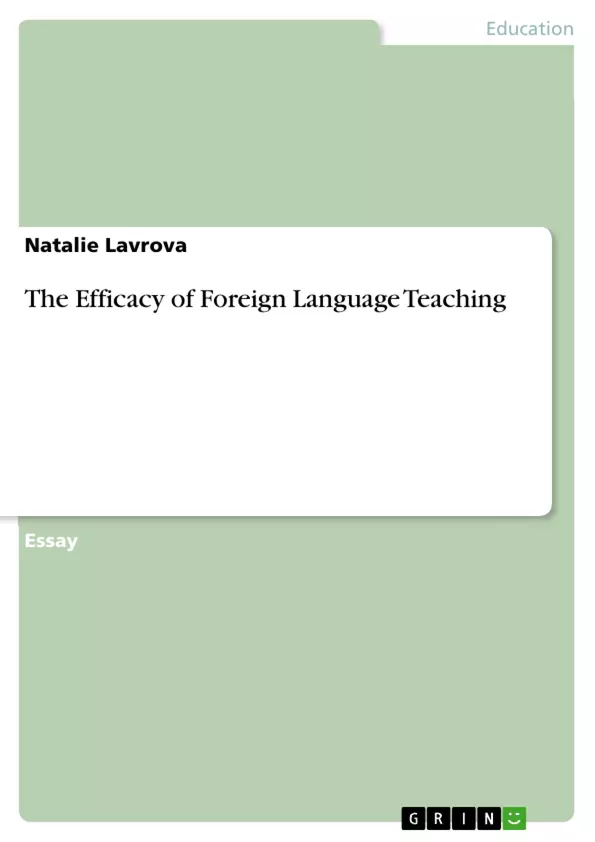Towards the Efficacy of Foreign Language Teaching
Lavrova N.A.
PhD., The Department of English Lexicology,
Moscow State Pedagogical University
The question of “what is the most effective way of teaching?” does not lose its topicality, nor does the more specific question of “what is the most effective way of teaching a foreign language to non-native speakers?”. Clamouring for the communicative approach has become a banality, the approach being introduced and implemented with variable success in many classroom settings. Methodological, educational and disciplinary bases seem to be a priority, so much so that it is not uncommon to hear a view, at least among Russian teachers of English, that it is not so much the knowledge of the language that matters, but the aspects just mentioned. This becomes the reality because organizing schoolchildren into a disciplined, more or less perceptive and responsive group is the bane of many teachers. A classroom setting differs from a family one in that everything is forced there from without, and it is only the hardly attainable ideal that ultimately the process of learning should become internalized by schoolchildren. Among lots of subjects, a foreign language may be a specific stumbling block, for it is literally “foreign” to schoolers, therefore motivating them must be one of the first items on the agenda. Given the lack of theoretical knowledge of the mother tongue, it is not surprising that starting to teach English by extensively explaining to schoolers the obscure and most of the time not very intelligible theory about it, does not quickly hit the bull’s eye, and falls on deaf ears. As a result, the majority of inexperienced teachers give up and shift to the implementation of the more rigorous routine of setting tasks and demanding their immaculate completion within a strictly defined time period. While it probably works for getting learners to do their homework, it is doubtful that in the long run this approach is conducive to acquiring a good command of the language.



